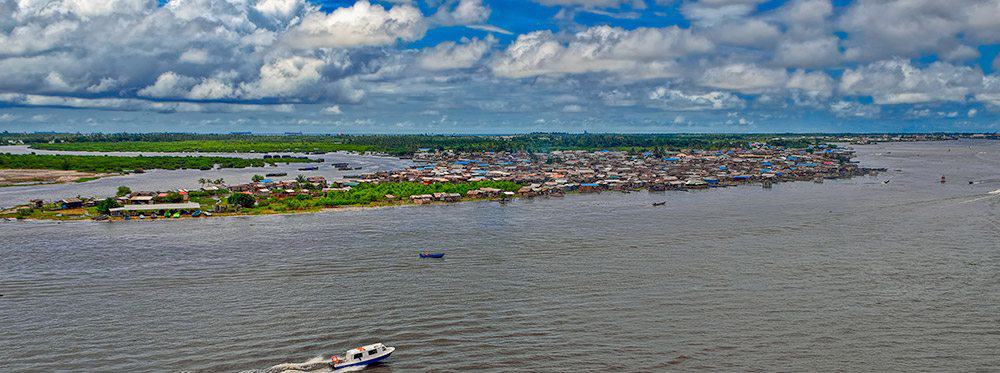International Schools in Nigeria are a great choice for both local and expat families as they offer globally recognized curricula, outstanding academics plus a nurturing environment for children. Discover our selection of the best International Schools in Nigeria, including reviews, fees, and why families choose them.
Why choose an international school in Nigeria?
Choosing the right educational path for your children can significantly influence their future. In Nigeria, international schools offer a unique blend of global curriculum standards, diverse cultural exposure, and advanced learning facilities. These institutions are committed to fostering an environment where students can excel academically and develop holistically, preparing them for the complexities of a globalized world.
Global Curriculum Standards
One of the most compelling reasons to opt for an international school in Nigeria is the adherence to global curriculum standards. These schools often offer International Baccalaureate (IB), British GCSEs, or the American curriculum, which can provide a smoother transition for students planning to pursue higher education abroad. The rigorous standards expected in these curricula encourage a deeper understanding and a more analytical approach to learning, equipping students with skills that are valued internationally.
Cultural Diversity
International schools in Nigeria are melting pots of cultures, bringing together students and staff from different nationalities. This exposure to diverse cultural backgrounds is invaluable, as it teaches students to appreciate differences and fosters a sense of global citizenship. The ability to interact and collaborate with people from various cultural backgrounds is a critical skill in today's interconnected world, and students at international schools in Nigeria are adept at navigating these complexities from a young age.
Advanced Facilities and Extracurricular Activities
When it comes to facilities, international schools in Nigeria often lead the way with state-of-the-art classrooms, science labs, and technology centers. These schools invest heavily in ensuring that their infrastructure supports a wide range of learning activities, including arts and sports. Extracurricular activities are plentiful, offering students opportunities to explore interests beyond the academic curriculum and develop talents in sports, arts, and other areas. This holistic approach to education is designed to nurture well-rounded individuals who are confident, creative, and capable of leadership.
Experienced and Diverse Faculty
The faculty at international schools often comprises experienced educators from around the world. This diverse teaching staff brings different perspectives into the classroom, enriching the learning experience and providing students with a broader worldview. The educators are typically well-versed in delivering an international curriculum and are committed to maintaining high educational standards. Their expertise helps in molding students into independent thinkers and lifelong learners.
In conclusion, international schools in Nigeria offer more than just an education; they provide a gateway to the world. By integrating global educational standards, fostering cultural diversity, and promoting a balanced development through a variety of extracurricular activities, these schools prepare students to meet the challenges of the modern world with confidence and competence. For parents looking to give their children a truly international education in Nigeria, these schools represent an excellent choice.
Top rated International Schools in Africa 2025
-
King’s School The Crown
0 reviewsInternational Schoolin 6th of October City, Giza Governorate· from 253,000 to 345,000 EGP / yearInaugurated in September 2023, in West Cairo, Egypt, King’s School The Crown is the first school in the region to offer an integrated and continuous premium education.Read moreWhy parents choose this schoolBritish Curriculum -
International School of Uganda
0 reviewsInternational Schoolin Kampala, Uganda· from 6,200 to 32,000 USD / yearThe International School of Uganda (ISU), formerly known as Lincoln International School, is located on a green 33-acre purpose-built campus in the quiet Kampala neighborhood of Lubowa.Read moreWhy parents choose this schoolIB Curriculum -
Khalil Gibran School Rabat
0 reviewsInternational Schoolin Rabat, Rabat-Salé-Kénitra· from 39,500 to 46,000 MAD / yearSince its foundation in 1986, Khalil Gibran School has been on a steady growth path, being a pioneer in Morocco with its international, rich and diverse educational program.Read moreWhy parents choose this schoolArabic English FrenchCambridge Curriculum Moroccan Curriculum -
The Aga Khan Academy Mombasa School
3 reviewsInternational School · Boarding Schoolin Mombasa, Kenya· from 500,000 to 3,058,000 KES / yearThe Aga Khan Academy Mombasa is part of a global network of day/residential schools for high-achieving students in Grades 1-12. The outlook and educational perspectives of the Aga Khan Academies network are based on the vision of His Highness the Aga Khan. The aim of the Academies is to develop future leaders with the skills […]
Read moreWhy parents choose this schoolIB Curriculum
How much do International Schools in Africa cost?
According to World Schools data, the yearly tuition fee for International Schools in Africa ranges between $5300 and $7700. However, the cost varies significantly depending on various factors such as the school curriculum, extracurricular activities, location, and facilities, and can go up to $31300.
The average yearly cost is $6900, around $700 per month, and can go up to the maximum monthly cost of $3200.
Additionally, most schools will also charge a one-time registration fee, and you also need to count an extra budget during the year for extracurricular trips, holiday camps, etc.
If you would like to explore International Schools in Africa with yearly fee filters, please use our advanced search filters.
Parent and Student Reviews of International Schools in Africa
Summary
International schools in Nigeria offer a robust educational platform through global curriculum standards like IB, GCSEs, or the American curriculum, fostering easy transitions for higher education abroad. These institutions champion cultural diversity and provide advanced facilities, ensuring students gain the necessary skills and exposure to thrive in a globalized society. The experienced, diverse faculty further enriches the learning environment, making these schools an optimal choice for a holistic educational experience.
